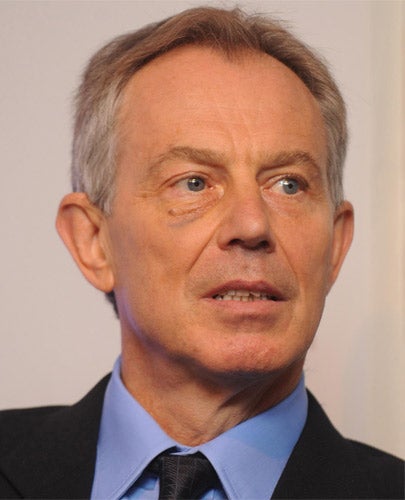Nothing presidential about new EU president's job
World Focus: European Union

Europhobes and Europhiles may rarely agree but they are conspiring – not for the first time – to foist a grand illusion on the European public.
Tomorrow night, we are told, European Union leaders will meet in Brussels to choose the first president of Europe. According to the "Phobes", this is a draconian step towards the subjugation of national identities within a single European, federal state. According to the "Philes", this is an important step towards humanising the EU – giving it a recognisable leader, both within the 27 EU countries and in the wider world.
In truth, the great majority of EU governments – having just created the job – are determined to make sure that it amounts to nothing very much at all: a Wizard of Oz without even the giant, illuminated mask or the booming, amplified voice.
The EU is not giving itself a single "president" but adding a third to the two which already exist. The presidents of the Commission and European Parliament will now be joined by a "president of the European Council".
The European Council is the official name for the twice yearly (at least) summits of EU heads of state or government. The new man or woman will preside over these summits, prepare their agenda and, according to the Lisbon Treaty, "drive forward" their work. He or she will have no executive role and no decision-making power. The day-to-day running of the EU will still be in the hands of the president of the European Commission. The job is, in a sense, a super-speakership. Some Philes still hope, and Phobes still fear, that it might develop into a true, directly-elected European presidency. Other Philes see it as a trap – a regression towards the more inter-governmental, loosely co-operative kind of Europe which Phobe-haunted Britain has favoured for more than half a century.
A strong Council president with few legal powers will, they argue, strengthen the hand of the member states against the European Commission president, who has a whole treaty of legal powers. Why not – as the Lisbon Treaty allows – create a truly strong president by giving both jobs to the same man or woman? You would then have a genuine "president for Europe". The question answers itself: no governments, outside possibly the Benelux, could remotely contemplate such a dangerous idea.
Little matter, some Europhiles said. The job will be defined by the eminence of its first incumbent, just like America's choice of George Washington in 1789. If you choose a Big Hitter, it will become a Big Hitting job.
As it turned out, only one Big Hitter was available. But Tony Blair's candidature, although not entirely dead, seems to have been doomed from the start. Many governments – including the allegedly Euro-federal-minded Germans – were determined to give the job to a little-known politician from a small country. By choosing a managerial candidate, member governments are voting for Muddle-Through-As-Usual.
The former US secretary of state, Henry Kissinger, once asked: "Who do I call if I want to call Europe?" With all due respect to the Belgian Prime Minister, Herman van Rompuy, or the ex-Latvian president, Vaira Vike-Freiberga, they are unlikely to supply Barack Obama or Hu Jintao or Vladimir Putin with a satisfactory answer.
Join our commenting forum
Join thought-provoking conversations, follow other Independent readers and see their replies
Comments
Bookmark popover
Removed from bookmarks